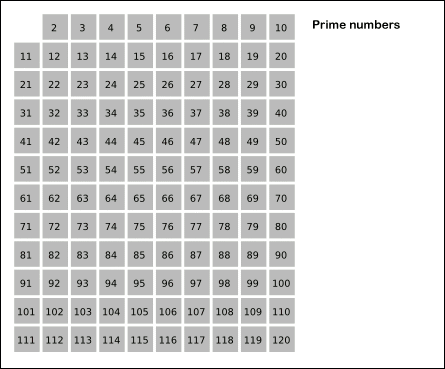🔥 Algorithm
 visual from the wikipedia page on the sieve of Eratosthenes
visual from the wikipedia page on the sieve of Eratosthenes
- If only check until
Math.sqrt(N), you should count the number of primes again.
/**
* @param {number} n
* @return {number}
*/
var countPrimes = function (N) {
const seen = Array(N + 1).fill(false);
let count = 0;
for (let p = 2; p <= Math.sqrt(N); p += 1) {
if (seen[p]) continue;
for (let i = p * p; i < N; i += p) {
seen[i] = true;
}
}
for (let p = 2; p < N; p += 1) {
if (!seen[p]) count += 1;
}
return count;
};
- If you check
seen[]untilN, you can checkcountin the same for the statement.
var countPrimes = function (N) {
const seen = Array(N + 1).fill(false);
let count = 0;
for (let p = 2; p < N; p += 1) {
if (seen[p]) continue;
count += 1;
for (let i = p * p; i < N; i += p) {
seen[i] = true;
}
}
return count;
};
💡 Simple algorithm
Sieve of Eratosthenes is good, but sometimes it's ok to use the simplest algorithm.
const isPrime = (num) => {
for (let i = 2; i <= Math.sqrt(num); i += 1) {
if (num % i === 0) return false;
}
return true;
};